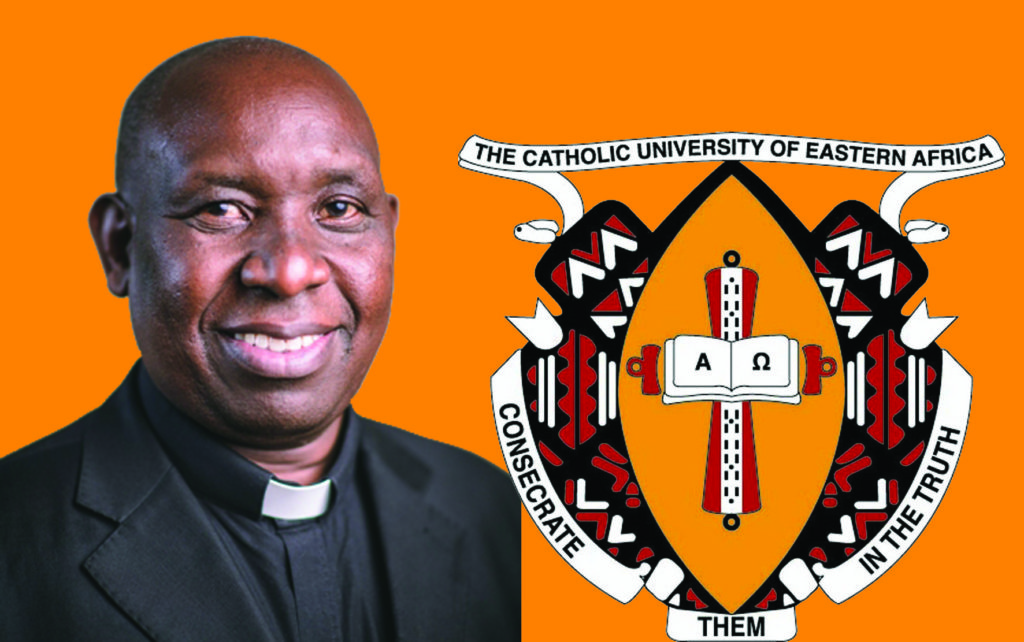KENYA: Catholic University “Sends its Staff on Unpaid Leave,” As COVID-19 Mitigation Measure

Sr. Jecinter Antoinette Okoth, FSSA
The Catholic University of Eastern Africa (CUEA) which is based in Kenya has sent over 130 staff on an indefinite unpaid leave as a mitigation measure over COVID-19 pandemic that has hit the education sector nationwide.
The measures taken to weather the pandemic storm has affected the secular faculties as well as Faculty of Theology, Institute of Canon Law and AMECEA Pastoral Institute (API).
“Since the government of Kenya issued directives in the month of March for the indefinite closure of Universities and other learning institutions to help curb the spread of Coronavirus, our students have not been paying fee, so our cash flow has gone down,” Vice-Chancellor (VC) of CUEA Very Rev. Prof. Stephen Mbugua Ngari told AMECEA online in an interview Thursday, August 13.
“Amidst the financial challenges, we have been paying our employees till the end of July,” Prof. Mbugua disclosed adding that, “After realizing that on-site learning will not take place from September as earlier mentioned by the Education Cabinet Secretary, we agreed with the University Council’s Executive Committee to release some of our employees on unpaid leave till further notice effective August 1, 2020 because we are not going to manage the payment of salaries of teaching staff except to ensure that only critical operations of the University are sustained in order to mitigate against total closure.”
The University that has been having virtual classes since the government stopped face-to-face learning has “very few students who have registered online units” which, according to the VC, has led to “a serious financial crunch.”
Speaking about the Faculty of Theology, the Kenyan-born cleric clarified that theologians especially Cycle One students, majority of whom are seminarians of Blessed Bakanja AMECEA College (BBAC), a regional theology seminary owned by AMECEA, “cannot be taught virtually because of the formation aspect which needs face-to-face encounter.”
Besides, Prof. Mbugua explained during the Thursday interview that according to Urbaniana Pontifical University in Rome, an academic institution belonging to the Congregation for the Evangelization of Peoples in which CUEA is an affiliate, “Seminarians have to follow the regulations of teaching as per Rome directives, hence CUEA cannot proceed with virtual learning of theology students unless authorities allow.”
“The Universities and Pontifical Faculties, in order to overcome the actual epidemic emergency, are making programs with all the directives and modes necessary to start the teaching in an ordinary way, i.e. lessons are held in the presence of the professors and students, according to the norms of the Apostolic Constitution,” reads in part the letter sent in May to Rectors of Affiliated Institutes and Seminaries to Urbaniana Pontifical University and shared with AMECEA Online.
The letter stressed further to affiliated learning institutions, “Each seminary or institute should do likewise.”
In line with the Rome directives, the CUEA VC in consultation with the Executive Council of the University met with “all teaching staff Clergy and Religious from the Faculty of Theology, Institute of Canon Law and the AMECEA Pastoral Institute, to apprise them of the resolutions that all of them proceed on unpaid leave until the University receives further directives from regulators, the Urbaniana Pontifical University and the Congregation for Catholic Education (CCE).”
Prof. Mbugua disclosed further that “all academic staff currently supervising student’s research projects, theses and post-graduate supervision including those from the Faculty of Theology and the Institute of Canon Law, shall continue to be paid at the normal supervision rates,” and “the staff clergy who reside in the University premises will not be charged rent and utilities.”
“It is our plan that upon the return to normal on-site operations, all staff that are presently on unpaid leave will be placed back on salary,” the Vice Chancellor concluded adding, “Upon resumption of normalcy, our primary focus shall again be on our transformation plan post-COVID-19 to ensure course correction to meet our strategic objectives for the growth of our University.”


